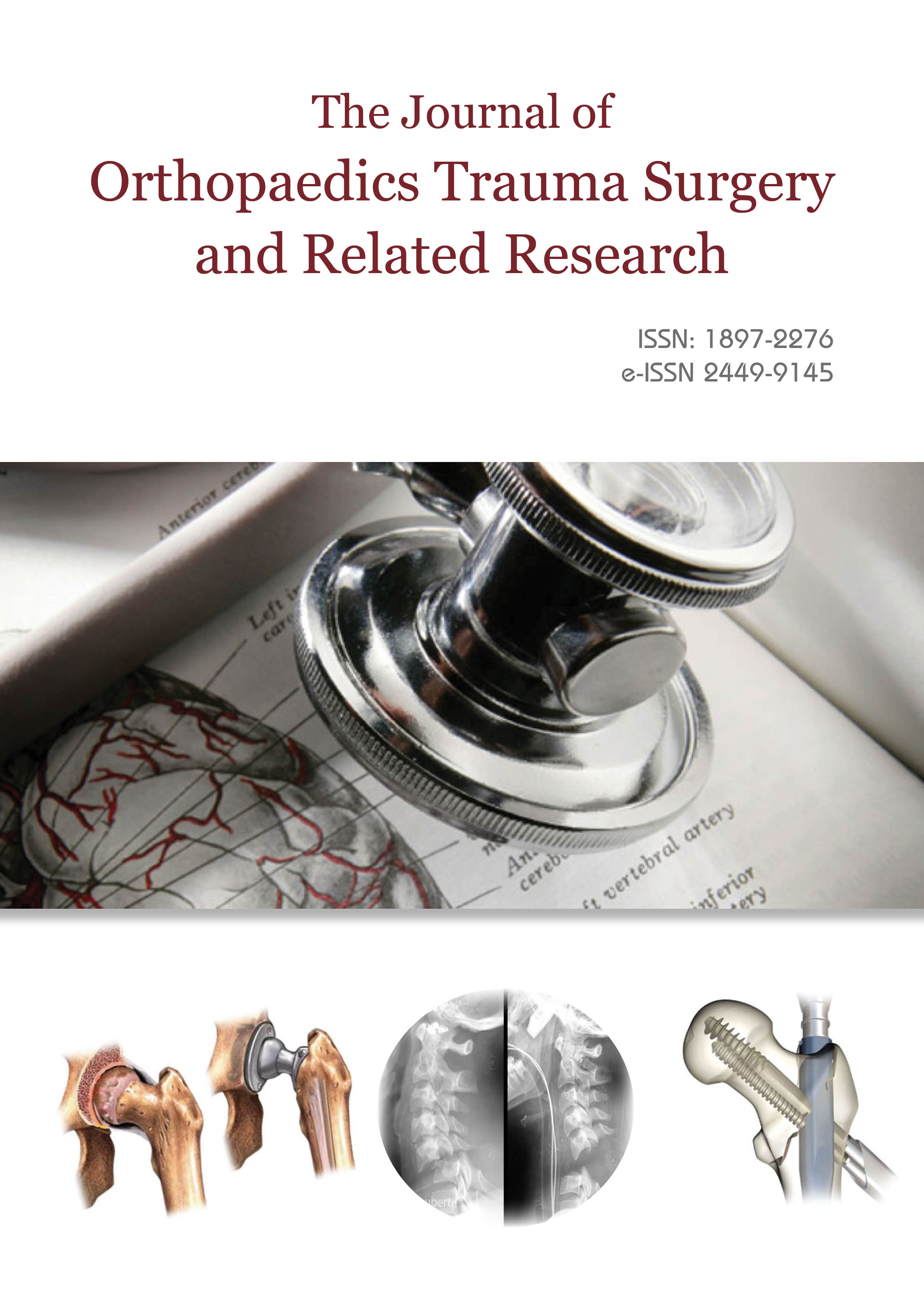Journal of Orthopaedics Trauma Surgery and Related Research

An Official Journal of Polish Society of Orthopaedics and Traumatology
ISSN:1897-2276
e-ISSN: 2449-9145

An Official Journal of Polish Society of Orthopaedics and Traumatology
ISSN:1897-2276
e-ISSN: 2449-9145
Introduction: In posterior thoracolumbar instrumentation, reduction and tightening of the rods are mechanically critical processes that may lead to overloading of the construct and surrounding tissues, possibly resulting in screw loosening, breakage, or disassembly of the implants.
Study Objective: To investigate the impact of the reduction and tightening procedure to the pedicle screw-bone anchorage.
Material and Methods: Two human cadaver specimens (T5-S1) fixed with pedicle screw-rod systems of different fixation philosophies, direct side-by-side comparison: Neo Pedicle Screw System™, controlled fixation and CD Horizon™ Solera™, standard fixation. Insertion torques and, after assembly and locking of the construct, extraction torques are recorded. The influence of the reduction and tightening procedure is demonstrated by comparing the difference between the insertion and extraction torques. The effect of distraction forces on pedicle screws is investigated.
Results: Median torque losses are significantly higher for standard fixation (0.539 Nm) compared to controlled fixation (0.393 Nm) (p<0.001), with higher insertion torques for standard fixation (0.966 Nm vs. 0.747 Nm) but similar extraction torques (0.344 Nm vs. 0.301 Nm). Insertion and extraction torque correlate for controlled fixation (r=0.792; p<0.001) and standard fixation (r=0.783; p<0.001). Torque losses are higher for both groups when distraction forces are applied on pedicle screws (p ≤0.041).
Conclusion: Reduction and tightening of the rod-screw interface has a relevant influence on the bone purchase of pedicle screws. Losses of biomechanical behavior appear to be greater in standard fixation surgical technique, controlled fixation techniques may result in lower forces. Clinical studies comparing both intraoperative procedures for potential benefits in screw loosening, construct failure, reoperation rates, and improved clinical outcomes are warranted.
Select your language of interest to view the total content in your interested language
 Journal of Orthopaedics Trauma Surgery and Related Research a publication of Polish Society, is a peer-reviewed online journal with quaterly print on demand compilation of issues published.
Journal of Orthopaedics Trauma Surgery and Related Research a publication of Polish Society, is a peer-reviewed online journal with quaterly print on demand compilation of issues published.